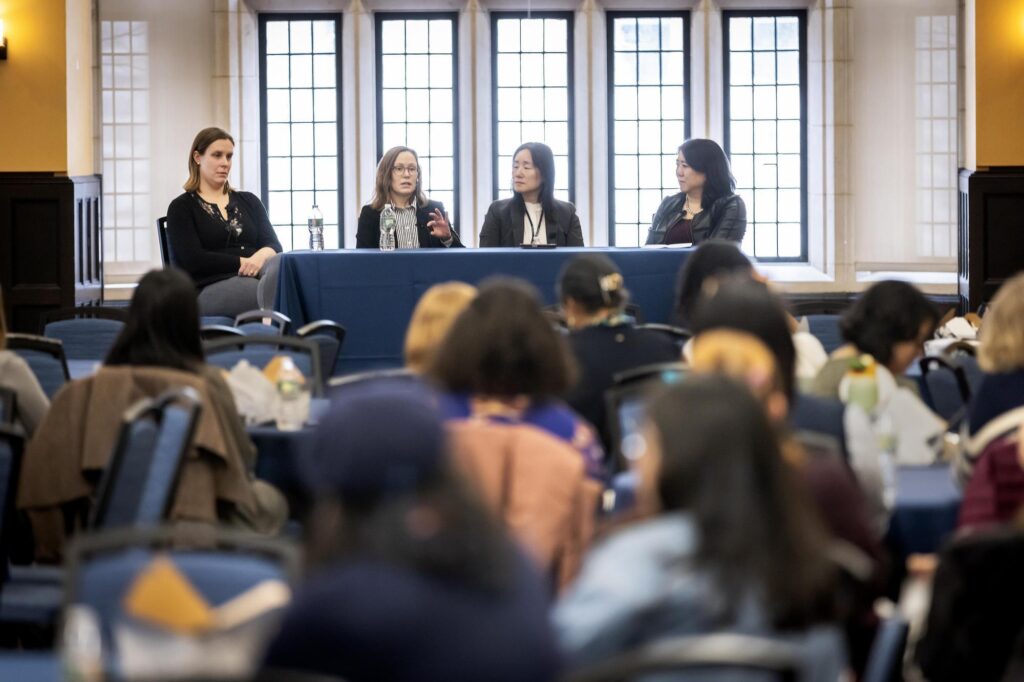
Whether it’s about the importance of forming connections and finding mentors, resilience in the face of failure, or strategies for work-life balance, University of Pennsylvania scientists have a lot of wisdom to offer, many insights gleaned from advancing through graduate school and their careers.
Students recently had the opportunity to learn from the experiences of four women in STEM at Penn: Vanessa Chan, the inaugural vice dean of innovation and entrepreneurship in the School of Engineering and Applied Science; Allyson Mackey, associate professor of psychology in the School of Arts & Sciences; Ping Wang, professor of pathology and laboratory medicine at the Perelman School of Medicine; and Melissa Kelly, deputy managing director at the Penn Center for Innovation.
Chan moderated the discussion as part of the annual Women in STEM Symposium, hosted by the Weingarten Center and Office of Equal Opportunity Programs. The theme this year was Pathways for Women in STEM: Exploring Innovation, Commercialization, and Entrepreneurship, and the event also included a poster fair from undergraduate and master’s women in STEM.
The four speakers took very different pathways to Penn. Chan spent 13 years at McKinsey & Company and later served as chief commercialization officer for the U.S. Department of Energy in the Biden Administration. Kelly transitioned from pre-med to research to tech commercialization.
Mackey thought about becoming an ecologist before growing curious about how environments shape human behavior, and she has since been driven by her passion for education and helping kids learn. Wang shifted from basic research to clinical chemistry but found she still had a passion for research.
They recounted failures and setbacks in their careers, but Chan reflected, “When the really bad stuff happens, it’s actually an opportunity for growth and a pivot, or to rethink where you might want to go.”
Wang had previously commented, “Even if you want to pivot into a different field, I don’t think the trainings and connections you have built during the process will be wasted.” This led Chan to ask a question with which both students and professionals may struggle: “How do you actually get a mentor?”
